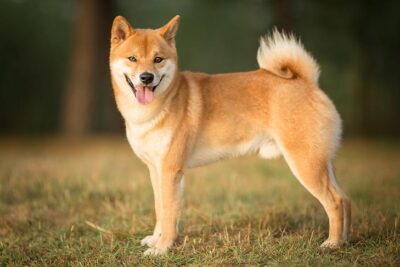Shiba Inu, originating from Japan, is a small and agile dog breed known for its bold, confident, and independent temperament. These dogs have been trained as hunting dogs for centuries and possess a strong prey drive. They have a strong sense of territory and are known to protect their home and family. This article will walk you through Shiba Inu temperament and breed uniqueness to help you understand what to expect when owning one.
Shiba Inus are a breed of dog known for their independence, playfulness, and confidence. They are highly intelligent and can be stubborn, so consistent training and socialization are essential. Shiba Inus are affectionate with their owners but can be aloof with strangers and other animals.
Moreover, They have a strong prey drive and like to chase small animals, so it’s important to supervise them when outside. Shiba Inus are an active breed that requires regular exercise and mental stimulation to stay happy and healthy.
Shiba Inus are a distinctive and ancient breed of dog originating from Japan. They have a bold, confident, and loyal personality and are generally low-maintenance dogs that can adapt well to apartment living as long as they get enough exercise. Shiba Inus have a strong hunting instinct and can be territorial, so early socialization is crucial to prevent aggressive behavior towards people and other animals.
Shiba Inu temperament
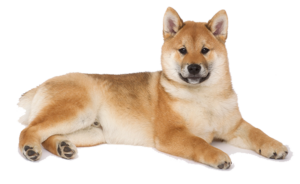
Shiba Inu dogs are often described as independent, confident, and assertive. They are known for their loyalty to their owners but can be aloof with strangers. Shiba Inus are also active and energetic, with a strong prey drive and a tendency to chase small animals. They can be quite stubborn and may require patient and consistent training.
Shiba Inus were initially bred in Japan as hunting dogs, and their instincts can still be quite strong. They can be possessive of their food, toys, and territory and may exhibit aggressive behavior toward other dogs.
Socialization and training from a young age are crucial to prevent these behaviors from becoming problematic. Shiba Inus are also known for their strong vocalization and can be prone to excessive barking.
On the positive side, Shiba Inus are intelligent and have a strong sense of self-preservation. They are adaptable to different living environments and can be good apartment dogs if they get enough exercise and mental stimulation. They are also known for their cute, fox-like appearance and can be quite affectionate with their owners.
Are Shiba Inus good with children?
Shiba Inus can be good with children, but it depends on several factors, such as the individual dog’s temperament and the child’s age and behavior. Shiba Inus can be reserved with strangers, including children, and may not be tolerant of rough handling.
Socialization from a young age can help with this, but children need to be taught how to approach and interact with dogs safely and respectfully.
Additionally, Shiba Inus are small dogs and may not be suitable for households with very young children who may accidentally hurt them while playing. Supervising any interactions between Shiba Inus and children is vital to ensure that both are safe and comfortable.
Do Shiba Inus make good apartment dogs?
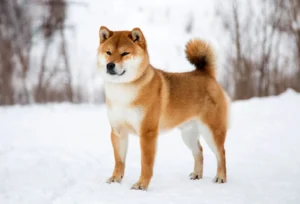
Shiba Inus can make good apartment dogs with enough exercise and mental stimulation. They are a small breed and don’t require a lot of space, but they are also active and energetic, so they need opportunities to run and play. A daily walk and access to a securely fenced outdoor area like a park would be ideal for them.
However, it’s important to remember that Shiba Inus can be prone to excessive barking, which may not be well-tolerated in an apartment setting. They also have a strong prey drive and may chase small animals, so keeping them on a leash in public areas is essential.
In addition, Shiba Inus can be independent and may require patience and consistency in training. It’s important for their owners to provide them with structure, routine, and mental and physical stimulation to prevent boredom and destructive behavior.
Are Shiba Inus easy to train?
Shiba Inus can be challenging to train due to their independent and stubborn nature. They were originally bred as hunting dogs and have a strong prey drive, making them difficult to control and focus during training sessions. Shiba Inus can also be very food-motivated, so positive reinforcement techniques, such as treats and praise, can help get their attention.
Additionally, Shiba Inus can be sensitive to correction and may not respond well to harsh training methods. Positive reinforcement and consistency are critical to successful training with this breed.
It’s also important to start training and socialization from a young age to help the Shiba Inu learn good behavior and to build a positive relationship with their owner. Training classes and professional training can also be helpful for both the owner and the dog.
Are Shiba Inus aggressive?
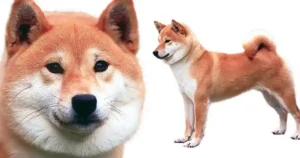
Shiba Inus can exhibit aggressive behavior, but it is not a breed-wide characteristic and can vary greatly between individual dogs. Several factors, such as fear, anxiety, lack of socialization, lack of training, and genetic predisposition, can cause aggression.
Common triggers for aggressive behavior in Shiba Inu include food aggression, territorial aggression, and dominance aggression toward other dogs. Shiba Inus can also be prone to barking and growling, which can signify aggression or protective behavior.
Shiba Inu owners need to provide proper socialization and training to prevent aggressive behavior from becoming problematic. Professional help from a qualified dog trainer or behaviorist may be necessary in some cases.
Do Shiba Inus shed a lot?
Shiba Inus do shed moderately to heavily, especially during certain times of the year. They have a double coat that protects them from the elements, and they shed their undercoat once or twice a year to regulate their body temperature. This shedding process can be heavy and result in a significant amount of loose hair in the environment.
Regular brushing can help to minimize shedding and prevent the matting of the fur. Providing proper nutrition to support a healthy coat and skin is also essential.
Shiba Inus are a breed that requires regular grooming to keep their coats healthy and to control shedding. Owners should be prepared for regular cleaning and vacuuming of their homes to manage the amount of loose hair.
Are Shiba Inus good with other dogs?
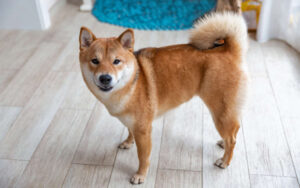
Shiba Inus can have varying levels of socialization with other dogs, as it can depend on individual temperament and early experiences. Some Shiba Inus may get along well with other dogs and enjoy playing and socializing, while others may be reserved or aggressive towards them.
Early socialization and training can help Shiba Inus to become comfortable with other dogs and to learn appropriate social behavior. Supervising interactions between Shiba Inus and other dogs, especially when they are first introduced, is vital to ensure they are safe and comfortable.
Shiba Inus has a strong prey drive, making it difficult to control small animals and other dogs. They may chase and bark at other animals, and it’s essential to keep them on a leash in public areas for their safety and the safety of others.
How active are Shiba Inus?
Shiba Inus are an active and energetic breed that requires regular exercise and mental stimulation. They were originally bred as hunting dogs and have a strong prey drive, which can make them high-energy and playful.
Daily walks and access to a securely fenced outdoor area, such as a park, are ideal for Shiba Inus to run and play. They also enjoy games, such as fetch and tug-of-war, and can participate in dog sports, such as agility and obedience, for additional physical and mental stimulation.
Ensure that Shiba Inus receives enough exercise and mental stimulation to prevent boredom and destructive behavior. A lack of physical and mental stimulation can lead to destructive behavior, such as chewing and digging, and behavioral problems, such as separation anxiety and excessive barking.
Do Shiba Inus have separation anxiety?
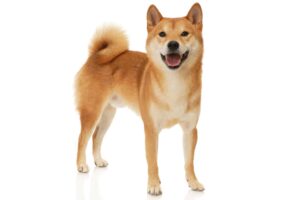
some Shiba Inus can develop separation anxiety, a condition in which they become anxious or stressed when separated from their owner. This can result in destructive behavior, such as chewing, digging, and excessive barking or whining.
Separation anxiety can be caused by factors such as a lack of socialization and training, a strong attachment to their owner, and genetics. It can also be triggered by changes in the environment, such as moving to a new home or introducing a new pet.
To prevent and manage separation anxiety, it’s crucial to provide Shiba Inus with proper socialization and training from a young age. Gradual acclimation to being alone, such as leaving them alone for short periods and gradually increasing the time, can also help to prevent separation anxiety.
Additionally, providing Shiba Inus with enough exercise and mental stimulation can help to reduce anxiety and stress. Providing a comfortable and secure environment, such as a crate or a familiar blanket, can also help to reduce anxiety.
Are Shiba Inus good for first-time owners?
Shiba Inus can be challenging for first-time dog owners due to their independent and strong-willed temperament. They can be challenging to train and require patience, consistency, and positive reinforcement training methods.
Shiba Inus are also known for being territorial and possessive of their toys and food, making it challenging to live within a multi-pet household. They can also be prone to separation anxiety and develop destructive behaviors if not given enough mental and physical stimulation.
However, with proper training, socialization, and understanding of their breed-specific temperament and needs, Shiba Inus can make good pets for experienced dog owners. They are loyal and affectionate with their owners and can be great companions.
First-time dog owners may consider a different breed known for being more adaptable and easier to train, such as a Labrador Retriever or a Golden Retriever.
Are Shiba Inus good watchdogs?
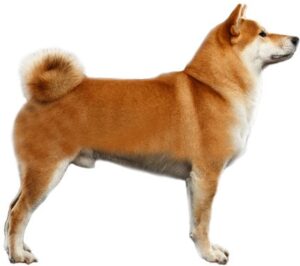
Shiba Inus can make good watchdogs due to their natural protective instinct and tendency to bark when they sense something is amiss. They were originally bred as hunting dogs and have a strong prey drive, which can make them alert and aware of their surroundings.
However, their barking can also be excessive and disruptive, especially if they need to be trained and socialized correctly. Early training and socialization can help Shiba Inus to become more comfortable with their environment and to bark only when necessary.
Shiba Inus can be territorial and possessive of their home and family, which can make them effective watchdogs. However, their strong-willed and independent nature can also make them difficult to control, especially around strangers and unfamiliar dogs.
Shiba Inus must receive proper socialization and training from a young age to help them become well-behaved and well-adjusted pets. This can also help them to become more confident and less likely to bark excessively.
Do Shiba Inus have a strong prey drive?
Shiba Inus have a strong prey drive. They were originally bred as hunting dogs and used to hunt small games such as birds and squirrels. This instinctual drive to chase and capture prey can still be present in Shiba Inus today, even if they are kept as pets.
This strong prey drive can make Shiba Inus challenging to control around small animals, such as cats, rabbits, and other small pets. They may also chase after squirrels, birds, and other small animals in their environment, which can put them in danger of being hit by a car or getting lost.
To help manage their strong prey drive, Shiba Inus should be trained and socialized from a young age to become comfortable with other animals and to understand basic commands such as “come” and “stay.” Providing them with plenty of mental and physical stimulation can also help to reduce their desire to chase after small animals.
Do Shiba Inus require a lot of grooming?
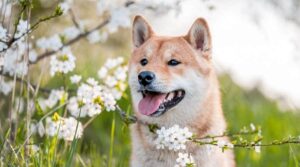
Shiba Inus have a thick, double coat that sheds seasonally, requiring regular brushing to control shedding. However, they are generally considered a low-maintenance breed in terms of grooming and do not need frequent baths.
In addition to brushing, regular nail trimming, ear cleaning, and teeth brushing are recommended to maintain their overall health and hygiene. It’s important to start grooming routines early in Shiba Inu’s life to help them get used to it and make the process easier. However, with proper care, Shiba Inus can be low-maintenance and easy to groom.
Are Shiba Inus good with cats?
Shiba Inus were originally bred to hunt small game, so they have a strong prey drive and may view cats as prey. While some Shiba Inus may coexist peacefully with cats, especially if they are raised together, others may have a strong instinct to chase and attack cats.
Supervising interactions between a Shiba Inu and a cat is essential to ensure their safety and prevent potential conflicts. Training and socialization can also help a Shiba Inu develop better habits around cats.
Ensure to note that each Shiba Inu is an individual and may have different tendencies and personalities. Some may be naturally more tolerant of cats, while others may have a strong hunting instinct.
It’s best to gradually introduce a Shiba Inu and a cat in a controlled and supervised environment to see how they interact before allowing them to spend extended periods together.
In general, if you are considering getting a Shiba Inu and already have a cat, it’s essential to research the breed and understand its natural tendencies. It’s also recommended to consult with a professional dog trainer or behaviorist to help you determine the best approach for your specific situation.
Do Shiba Inus have a tendency to be vocal?
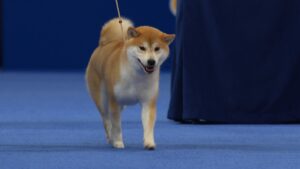
Shiba Inus can be quite vocal. They were originally bred as hunting dogs, and their vocalizations served to communicate with their human handlers. Shiba Inus are known to bark, howl, and make other noises to express their excitement, frustration, or demand for attention.
While this vocal behavior can endear some owners, it can be a problem for others, especially if the dog is left alone for extended periods. Consistent training and positive reinforcement techniques can help reduce excessive barking, but some Shiba Inus may always be more vocal than others.
Conclusion
In conclusion, the Shiba Inu is a distinctive and charming breed of dog with a strong personality. They are highly active and independent, but with proper training and socialization, they can also be affectionate and loyal to their owners.
Shiba Inus have a hunting instinct and can be vocal, but consistent training can help reduce excessive barking. They are a low-maintenance breed in grooming but require regular brushing due to their thick, double coat. The Shiba Inu temperament is best suited for experienced dog owners who are prepared to provide consistent training and attention to meet the breed’s needs. The Shiba Inu can make an excellent pet for the right owner.

